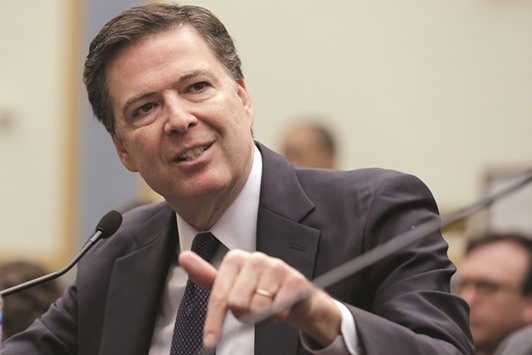The US government said it may not need Apple’s help to unlock a terrorist’s iPhone after all.
A court hearing set for yesterday over a magistrate judge’s order requiring Apple to help the FBI bypass the phone’s security was cancelled at the Justice Department’s request. The government said in a court filing on Monday that it wanted to test a possible method for accessing data on the phone, which was used by one of the attackers who killed 14 and wounded 22 at a holiday party in San Bernardino, California, on December 2.
The cancellation avoids a courtroom face-off — at least for now — in a case that may yet redraw the boundary between personal privacy and national security in the mobile Internet age. Apple has vigorously opposed the government’s effort to force it to create software to undercut iPhone security features, saying doing so would threaten the privacy and data security of millions of iPhone users.
The Justice Department didn’t identify who stepped forward with a new technique for unlocking the phone.
“The FBI has continued in its efforts to gain access to the phone without Apple’s assistance, even during a month-long period of litigation with the company,” Melanie Newman, a Justice Department spokeswoman, said on Monday in an e-mailed statement.
“An outside party demonstrated to the FBI this past weekend a possible method for unlocking the phone. We must first test this method to ensure that it doesn’t destroy the data on the phone, but we remain cautiously optimistic.”
The government was ordered by Magistrate Judge Sheri Pym in Riverside, California to file a report on the status of its efforts by April 5. Pym also put on hold her order for Apple to cooperate.
“There’s a lot of people right now who are curious who this third party is,” said David O’Brien, a senior researcher with the Berkman Center for Internet and Society at Harvard University. “It appears the FBI turned away from the opportunity to test its case in court and get a ruling that could have set a precedent.”
Apple attorneys told reporters on a conference call that they have no information about the Federal Bureau of Investigation’s new claim that it may be able to access the iPhone without the company’s help. They only found about it on Monday, they said.
The lawyers added that they would want the government to share the nature of the security vulnerability with the company if the case proceeds.
The Justice Department won’t need Apple’s help in running tests and should know by April 5 whether it works, said a law enforcement official who asked not to be identified.
The entity that approached the Justice Department on Sunday isn’t part of the US government, said the official, who declined to provide any other details about it.
If the method works, it will eliminate the need for the court case against Apple to continue, but it’s too early to say if the technique could also be applied to other cases, the official said.
Security experts have said there are many ways the FBI could hack into the iPhone 5c used by Syed Rizwan Farook, who with his wife carried out the attack in San Bernardino. Both were killed hours later in a police shoot-out.
Jonathan Zdziarski, a cybersecurity researcher who consults with law enforcement, says the FBI might be able to copy the contents of the phone onto a chip and swap it out. Other potential solutions include finding and exploiting cracks in the software. All systems contain flaws and they continue to be found every month in Apple’s software, according to Jason Syversen, a former manager at the Defense Advanced Research Projects Agency (DARPA) and now chief executive officer of cyber security firm Siege Technologies.
Some experts have argued that the FBI should ask the National Security Agency for help. They note that the NSA is the best-funded spy agency on Earth, employs legions of hackers and almost certainly can break into secure computer systems. But in testimony before Congress this month, Worcester Polytechnic Institute cybersecurity professor Susan Landau said the NSA may be reluctant to help the FBI, since the secretive agency’s hacking abilities could become public should it be hauled into court.
Chief Executive Officer Tim Cook, at Apple’s product launch on Monday announcing the release of a smaller iPhone, opened the event by wading into the political debate over privacy and encryption, saying “We believe strongly we have a responsibility to help you protect your data and your privacy.”
Cook went on to introduce a new, smaller iPhone that will start at $399, seeking to jump-start sales of Apple’s flagship product by enticing more users to upgrade, especially in high- growth markets such as China and India. The iPhone SE has a 4-inch-screen and will include the same encryption features, such as Touch ID fingerprint-recognition, as the larger iPhone 6S.
Apple’s product release event closed with rocker Tom Petty’s “I Won’t Back Down” blaring over the sound system.

FBI director James Comey testifies during a House Judiciary hearing on u201cThe Encryption Tightrope: Balancing Americans’ Security and Privacyu201d on Capitol Hill in Washington on March 1. The government said in a court filing on Monday that it wanted to test a possible method for accessing data on the phone, which was used by one of the attackers who killed 14 and wounded 22 at a holiday party in San Bernardino, California, on December 2.
